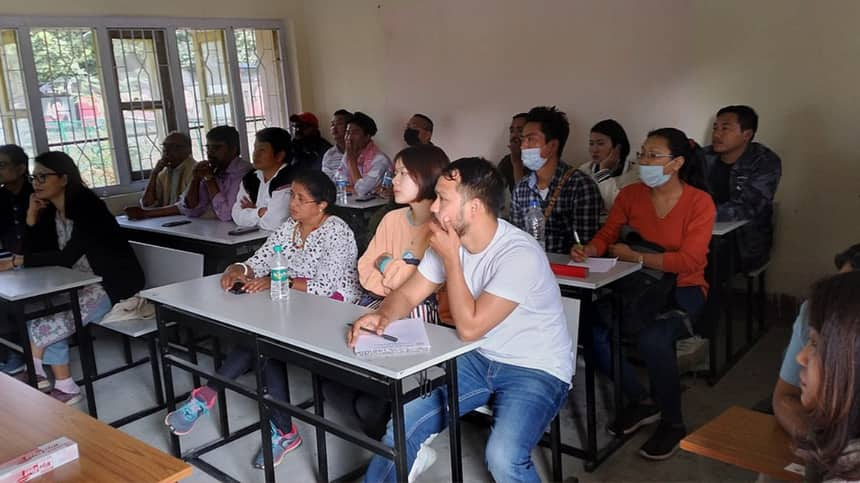Skill development initiatives ‘ignore’ humanities, social science students: Parliamentary Panel
Shradha Chettri | February 6, 2025 | 10:21 AM IST | 3 mins read
The panel has also noted the poor integration of social science training in technical institutions beyond the IITs, IIITs and contractual appointments in central universities.

NEW DELHI: A parliamentary panel has observed that skill development initiatives in the country “ignore students with humanities and social science backgrounds”. It has also flagged excessive “contractualisation” in these fields at central universities.
The panel also pointed out how the introduction of humanities and social science courses in technical institutes has been confined mostly to the Indian Institutes of Technology (IIT) and Indian Institutes of Information Technology (IIIT).
The Parliamentary Standing Committee on Education, Women, Children, Youth and Sports,headed by Rajya Sabha MP from Congress, Digvijay Singh, submitted the report on February 4. The committee has raised concerns about the proposed Higher Education Commission of India’s (HECI) impact on rural education and equity – the HECI Bill was first drafted in 2018 – as well as the proposed Digital University. It was announced in the 2022-23 budget but no Bill has yet been introduced in parliament. The panel has specifically pointed to the Digital University’s “foundation”, the SWAYAM platform, and its poor record of course completion.
The panel has also said that the department has not taken action to check “check commercialisation of education” through the nexus between colleges and coaching institutes in certain cities.
Parliamentary Panel : Humanities and social science
The committee recommended that the department of higher education and University Grants Commission (UGC) and the universities collectively review the current state of academia-industry partnerships and take measures to strengthen them.
The department did list the measures taken but, as the panel pointed out, most are connected to technical education in elite institutions.
“The committee observes that the Department in its Action Taken Note has emphasised on several initiatives aimed at skill development which includes linkages with industry and institutions, summits and leadership workshops, entrepreneurship centres at business schools. However, these initiatives focus only on a certain fraction of students who have commerce or science or technical background. It ignores students with humanity-related subjects. The committee, therefore, recommends that the department should emphasise more on students from non-technical, humanities and related backgrounds,” the report stated.
It had similar observations about the introduction of training in social sciences and humanities in technical institutions. Here, too, the department listed measures but the panel noted that most efforts are limited to IITs and IIITs with scant attention paid to other central and state institutions.
Contract staff in central universities
The committee has recommended undertaking a review of the current system of faculty recruitment, appraisal, assessment, promotions and for developing a rewards-based regime on performance measured through research contributions and publications.
It has especially suggested developing a model of appointing alumni, senior students and research fellows as teaching assistants.
Highlighting how the department has not worked on the specific recommendations of appointing alumni or senior students, the report said, “It can be done on a trial basis in a few universities and evaluated before being scaled up nationally.”
The department informed that the UGC has set up a panel to conduct a performance audit of selected central Universities; the committee has asked for the report to be shared “at the earliest”.
On contractualisation in universities under central government, the panel said, “This shift away from permanent, secure government jobs towards casual, short-term contracts has been driven by the government's retreat from public education and the increasing influence of neo-liberal policies.” The committee has not commented on the new draft regulations on teacher recruitment in colleges and universities; the UGC draft regulations have lifted the cap on contractual appointments.
The department stated that 22,286 vacancies have been filled in mission mode across institutions, with 9,817 being in central universities.
The panel has also noted a “disturbing trend” of colleges associating with coaching classes making, as it says, “the learning process a farce”.
The committee has said that the department has taken no action. It had recommended that the central government set up “study groups” to take stock of ground realities but no action has been taken on that so far.
This was the first report of the panel reconstituted after last year’s Lok Sabha election.
Follow us for the latest education news on colleges and universities, admission, courses, exams, research, education policies, study abroad and more..
To get in touch, write to us at news@careers360.com.